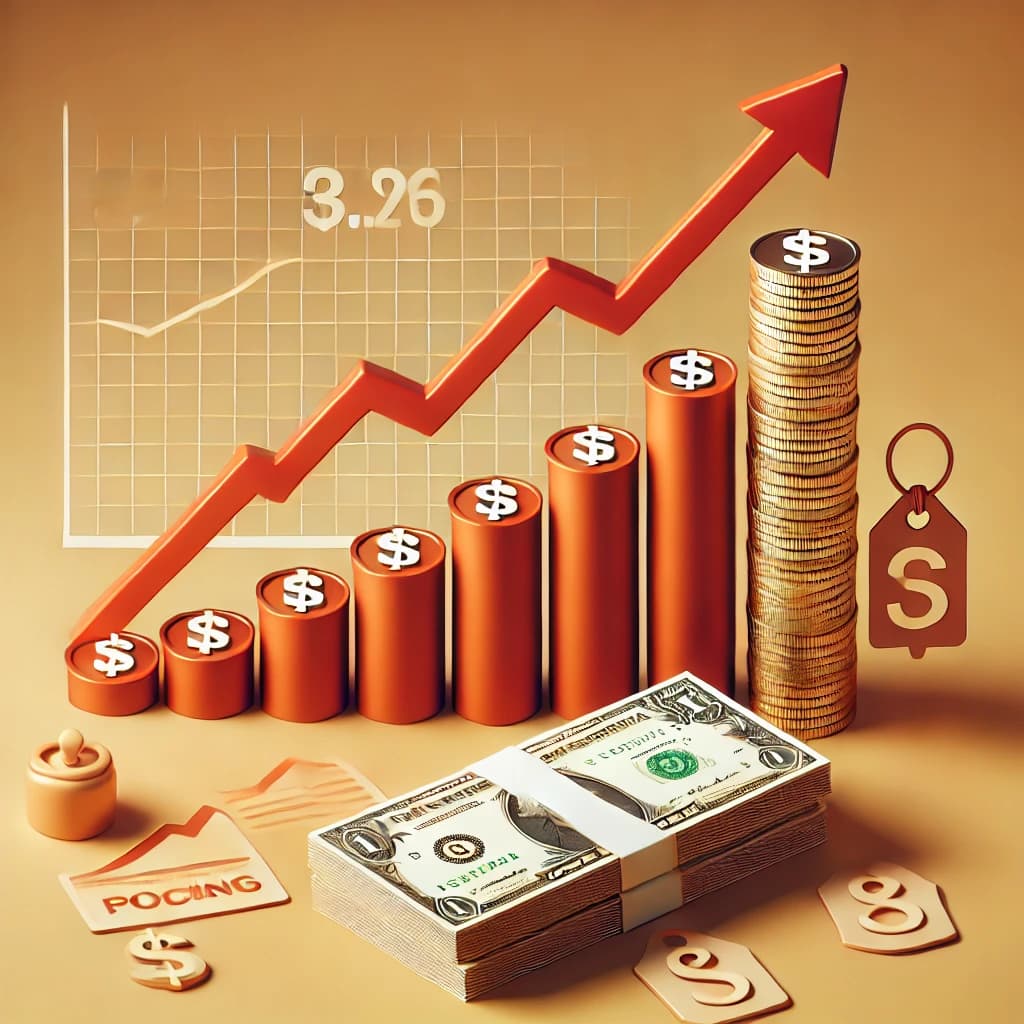Why Does Inflation Occur and Why Is It So High?

Inflation is a word we've all heard, especially in recent years, but what exactly is it? Inflation means that the prices of goods and services go up, making your money worth less over time. This can affect everything from the cost of bread to the price of a new car. But why does inflation happen, and why does it sometimes rise so quickly?
To understand inflation, we need to explore key factors like money printing, money supply, and the causes of inflation. Let’s break it down in a simple way that anyone can follow.
What is Inflation?
Inflation is the rate at which prices rise. When inflation is high, you need more money to buy the same things you used to. For example, if a cup of coffee cost $2 last year but costs $2.50 this year, that’s inflation in action. Inflation affects everyone because it decreases the purchasing power of your money.
Why Does Inflation Occur?
Inflation happens when there’s more demand for goods and services than the supply available, or when the cost of producing goods goes up. There are a few main reasons why inflation occurs:
-
Demand-Pull Inflation: This occurs when there’s more demand than supply. Think about it like this: if everyone wants to buy the same car, the price of that car will likely go up because there’s more competition to get it.
-
Cost-Push Inflation: This happens when the cost of production for businesses rises. For example, if the price of oil goes up, companies that use oil in their products or services (like transportation companies) have to pay more, and they pass these costs on to consumers.
-
Money Supply Growth: When too much money is printed and released into the economy, there’s more money chasing the same amount of goods. This leads to inflation because people have more money to spend, but there aren’t more products available.
The Role of Money Printing
One of the major causes of inflation is money printing. When governments or central banks print more money, it increases the money supply. While it may seem like having more money is a good thing, it can actually cause prices to rise if there isn't an increase in the production of goods and services.
Let’s say a country prints a large amount of money. Everyone suddenly has more cash, but there’s still the same number of houses, cars, and food in the economy. With more money in circulation, people are willing to pay more for these items, driving prices up. This is exactly what happens during inflation caused by money printing.
Why Does Money Supply Matter?
The money supply is the total amount of money in circulation within an economy. When the supply of money increases too quickly, it devalues the currency. Imagine if suddenly everyone in your neighborhood had twice as much money overnight. People would be able to pay more for everyday things, so businesses would raise prices to match this new demand.
Governments often print more money to help pay off debts or to stimulate the economy during tough times, such as a recession. However, this can lead to inflation if not done carefully. If the money supply grows faster than the economy can handle, inflation will occur.
Why Is Inflation So High Right Now?
In recent years, you may have noticed that prices have been rising faster than usual. Why is inflation so high? The COVID-19 pandemic caused many disruptions in the global economy. Governments around the world took steps to support their economies by increasing the money supply through stimulus packages and printing more money. This helped people and businesses stay afloat during a tough time, but it also led to inflation.
At the same time, supply chain issues meant that fewer products were available. When people have more money and there are fewer goods to buy, prices rise quickly. This is what’s known as a supply and demand imbalance, a common cause of high inflation.
The Causes of Inflation
To recap, there are several causes of inflation:
- Increased demand: When more people want to buy the same products, prices go up.
- Rising costs: When businesses face higher costs, they pass these on to consumers.
- Money printing and increased money supply: Too much money in the economy leads to inflation because there aren’t enough goods and services to match the increased money.
Sometimes, inflation is caused by a combination of these factors. For instance, during the pandemic, both supply chain disruptions and increased money printing contributed to high inflation.
Is Inflation Always a Bad Thing?
Not necessarily! A little bit of inflation is normal and even healthy for an economy. It encourages people to spend and invest rather than hoard their money. However, when inflation becomes too high, it can erode purchasing power and make life more expensive for everyone.
Think of inflation as a balancing act. Too little inflation can lead to economic stagnation, while too much inflation can make it hard for people to afford basic goods and services.
What Can Be Done to Control Inflation?
Governments and central banks can take steps to control inflation. These include:
- Raising interest rates: This makes borrowing more expensive, which can slow down spending and reduce demand.
- Reducing the money supply: Central banks can reduce the amount of money in circulation by selling government bonds or by other financial measures.
- Improving supply chains: Ensuring that goods and services are available to meet demand can help reduce inflationary pressures.
However, these solutions take time to work, and there’s always the risk of going too far in the other direction, leading to deflation (when prices fall too much).
Conclusion
Inflation is a complex issue that affects everyone. Whether it’s caused by too much money printing, supply chain problems, or rising costs, inflation can make life more expensive and harder to plan for. As we’ve seen in recent years, the balance between money supply, demand, and the availability of goods plays a huge role in determining how high prices rise.
